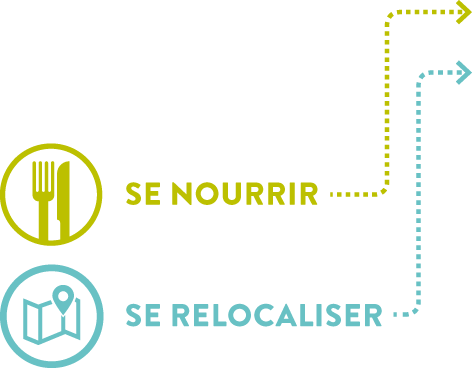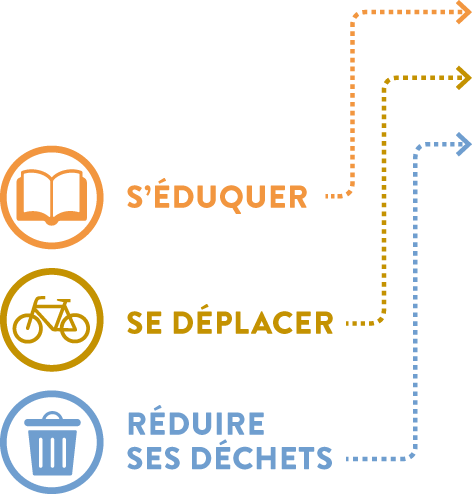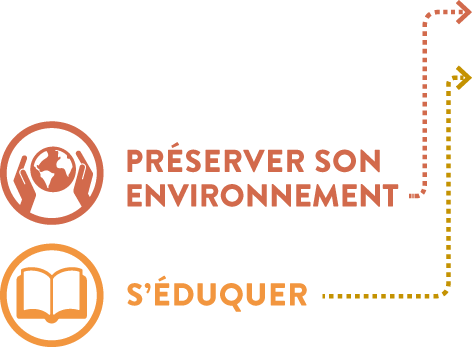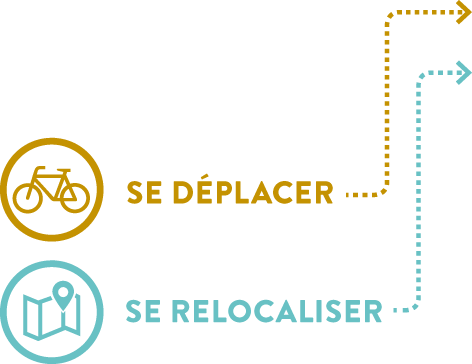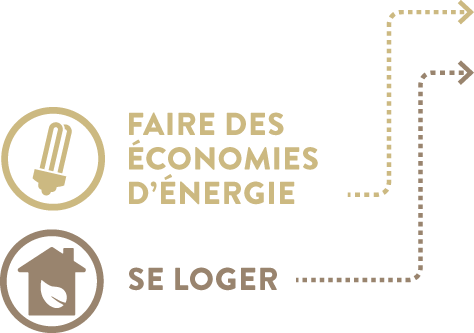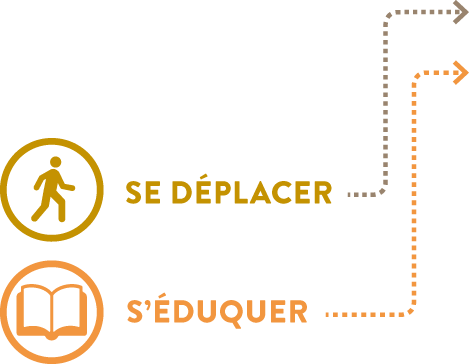-
Ile-de-France
“Let’s be change”
Proposals to reduce our carbon footprint
«The future is not what must happen, but what we’ll do». Throughout Île-de-France, men and women have made this maxim of philosopher Henri Bergson their own. Without waiting for the 21st Conference of the Parties on Climate Change (COP 21) these pioneers are making their presence on Earth lighter to limit the warming of the atmosphere. Consuming local organic produce, choosing soft transport modes, fighting waste, repairing and recycling instead of throwing things away, composting green waste, teaching children about the environment, making energy savings… Faced with the urgency of the climate situation, alternatives emanating from civil society abound in Île-de-France, as they do elsewhere on the planet, for fair and lasting change. So many proposals for interdependent solutions that enable human beings to connect with themselves, others and nature. To quote Gandhi, «Be the change that you wish to see in the world».
Texts: Aude Raux
Photography: Jérômine Derigny and Éléonore Henry de Frahan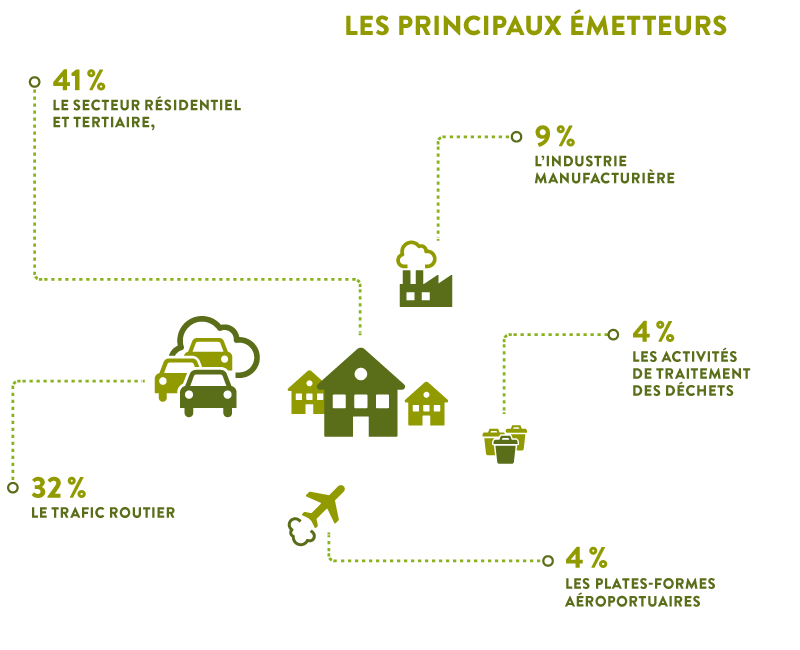
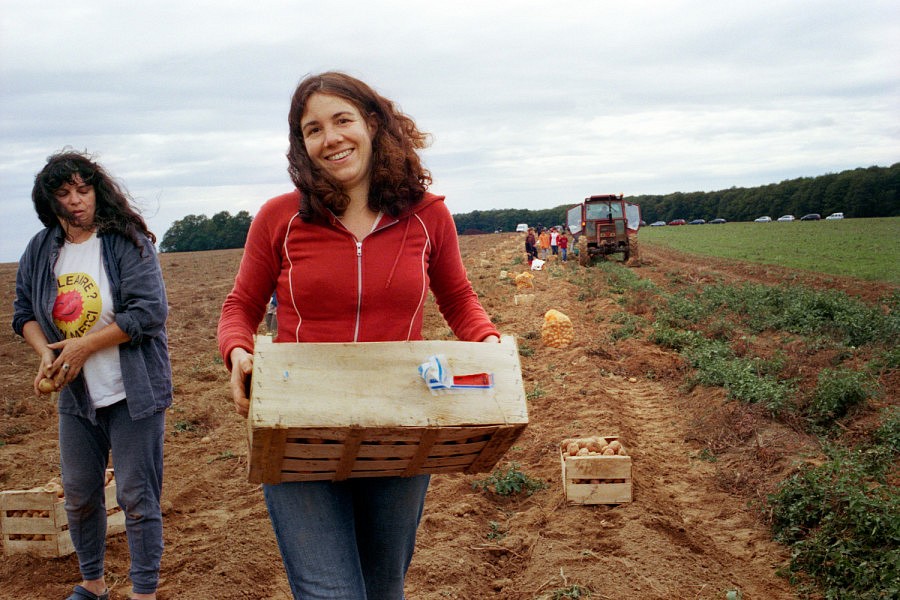
Proximity
«As the CSA is not far from where I live, I come on foot. The vegetables are organic and grown without products made from petrochemicals and they have not come thousands of miles by lorry, which is good for the environment and the climate. And they are seasonal. Mind you, after a while, I do get fed up of cabbage. I would also like to eat tomatoes as soon as spring arrives. But you have to go with nature. And besides, the atmosphere here is so friendly.»
Bernadette Tayeb, member of the CSA (Community Supported Agriculture Association) of Les Douvières, based in Longpont-sur-Orge (Essonne)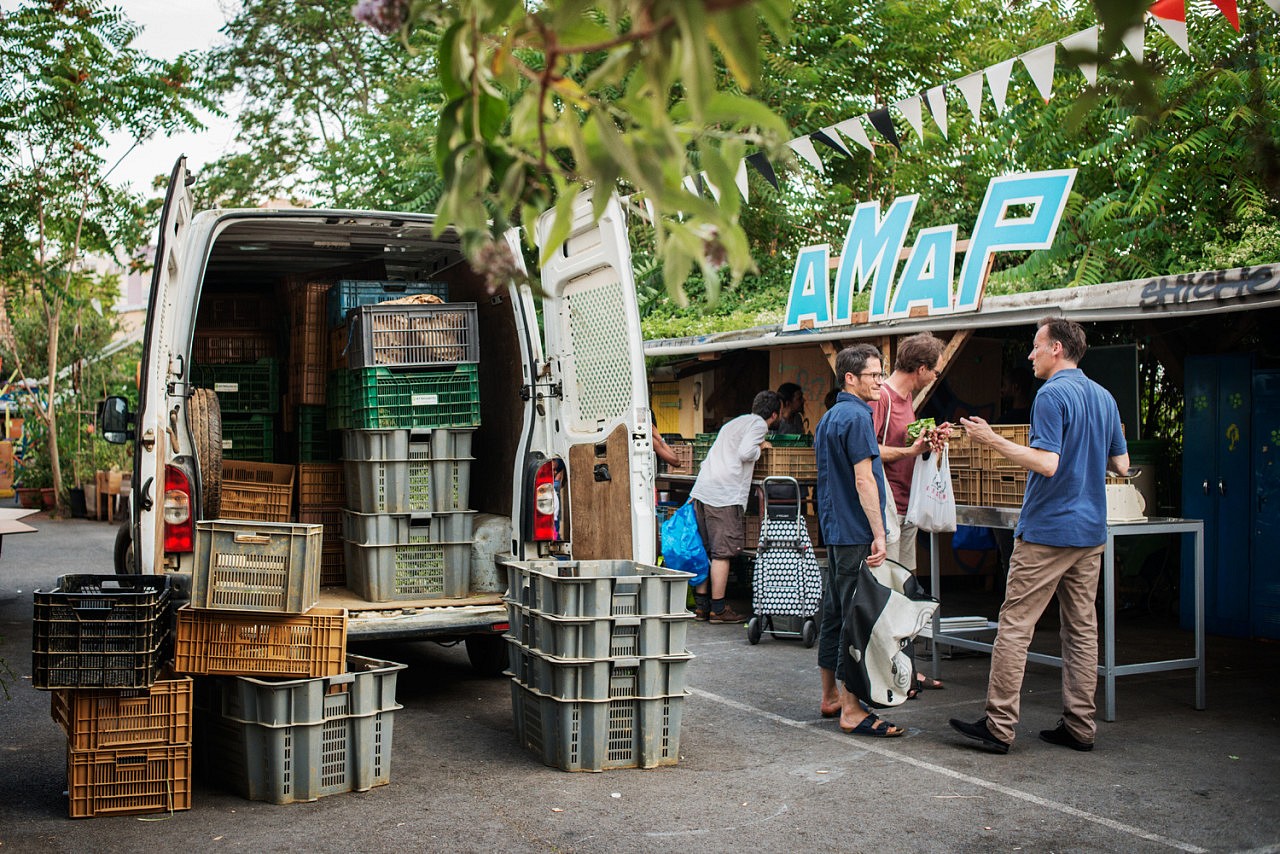
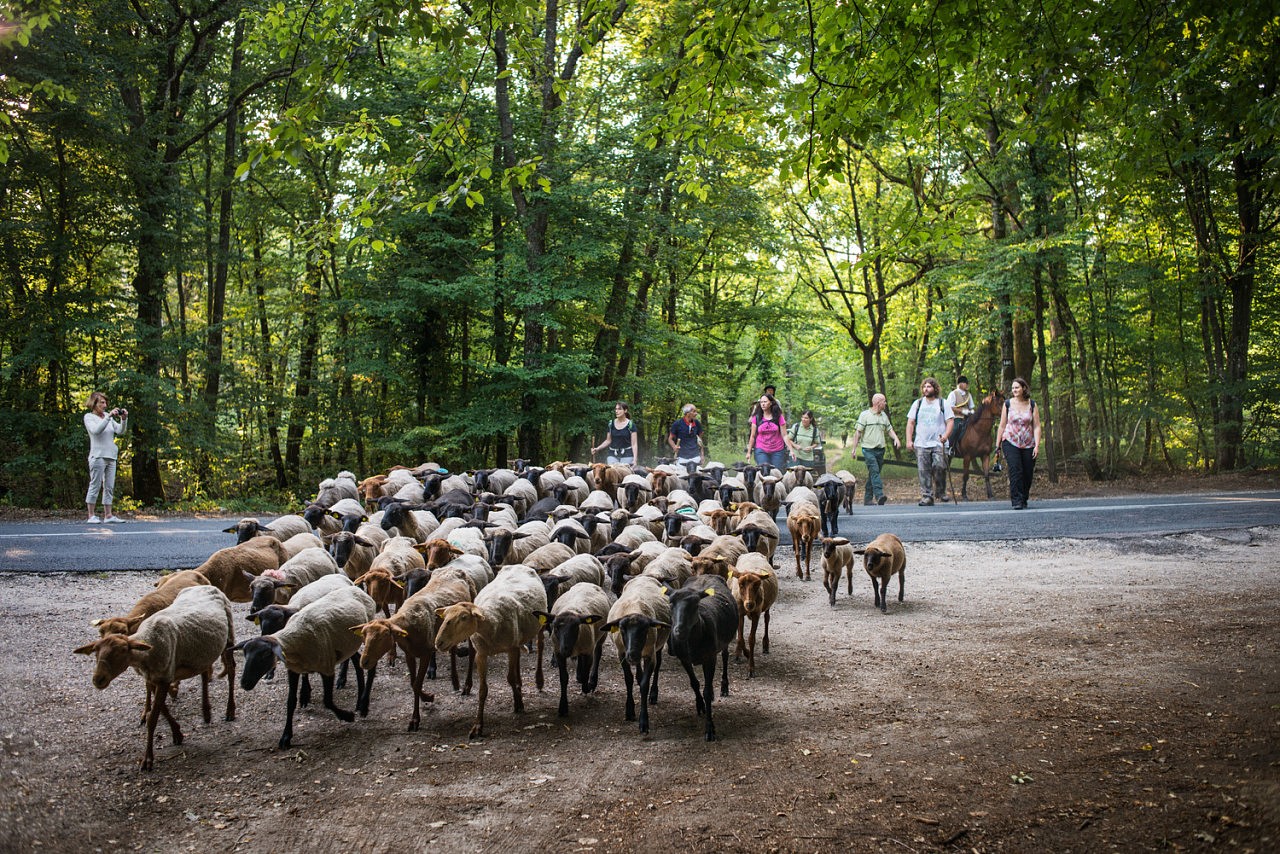
Meat
There he is, wrapped in his solitude. There he is, surrounded by this flock of a hundred ewes and the trees of the forest of Fontainebleau. Alexandre Faucher is a shepherd. Convinced «that you do not protect nature by putting it under a cloche, but by giving it an economic value, since that’s all that counts in our society», he has returned to the traditional pastoralism that disappeared from the forest of Fontainebleau a hundred and fifty years ago. «It’s like in the pictures you see in the Château museum: there’s always a scene with a shepherd.» He sells his lamb direct to the CSA (Community Supported Agriculture Association) of Lancoeur, situated 30km away, in Bombon (Seine-et-Marne). «This project,» he emphasises, «is a real agro-environmental challenge.»
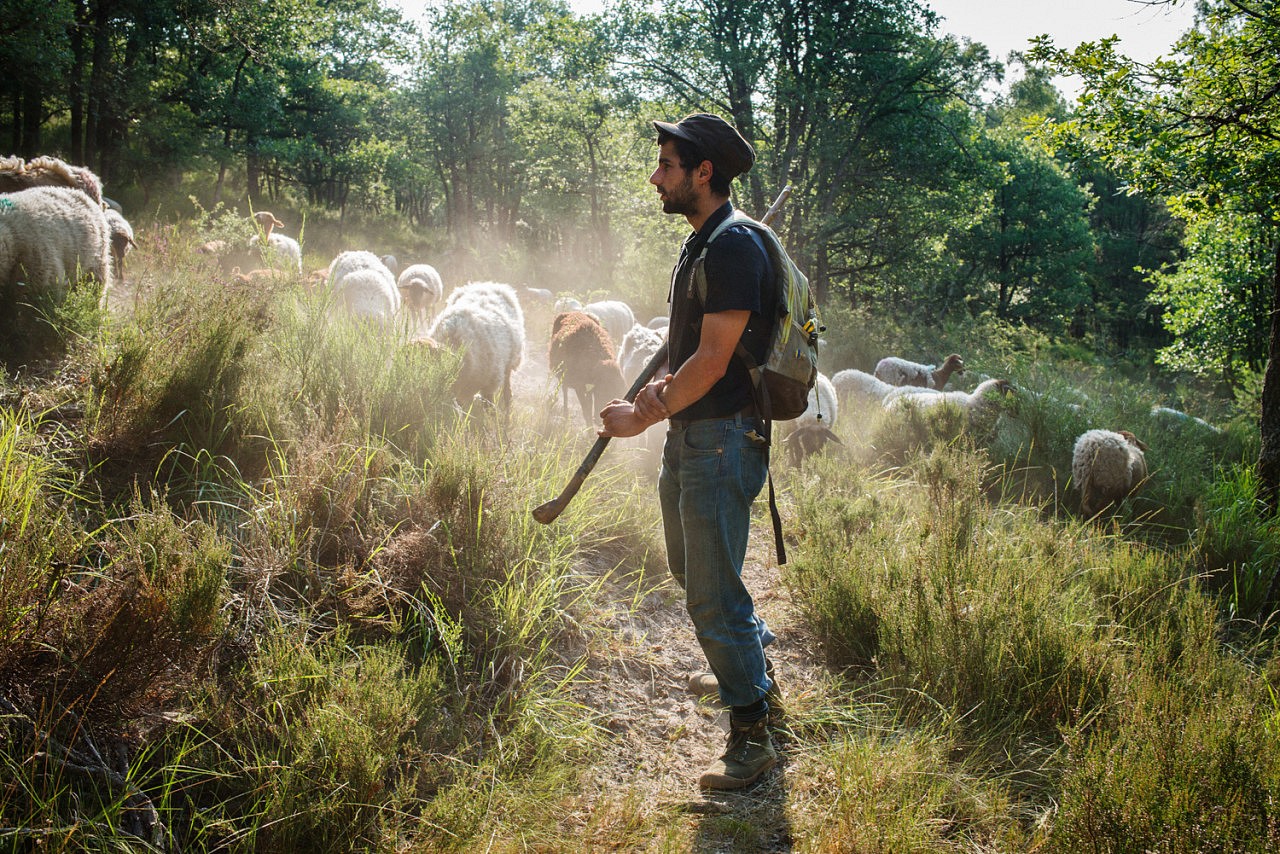
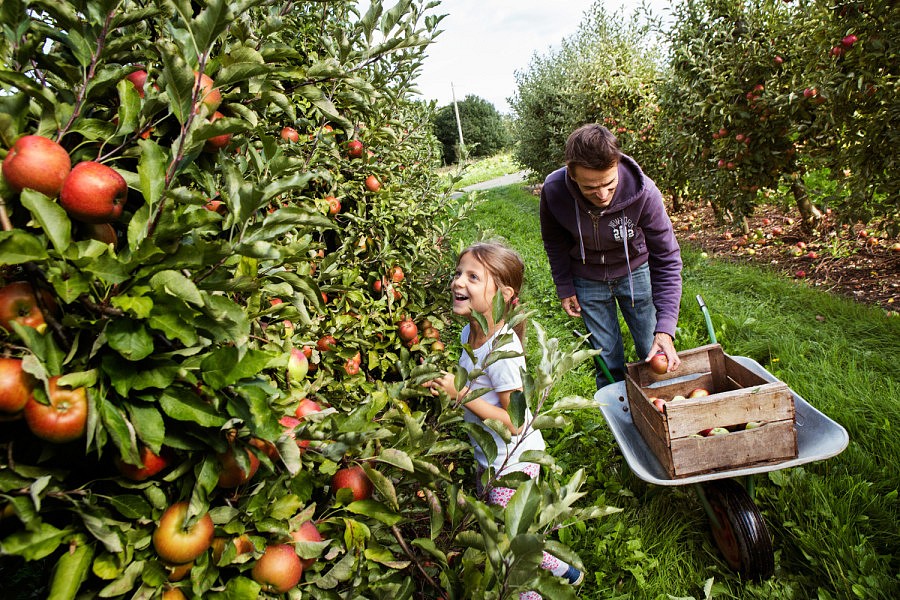
Fruit picking
From April to mid-November, farms are opening their gates to us soil-free city-dwellers so that we can reconnect with Mother Earth. Well, so that we can pick fresh, seasonal fruit and vegetables close to home. For example at Les Vergers de Champlain, a farm that practises integrated agriculture.
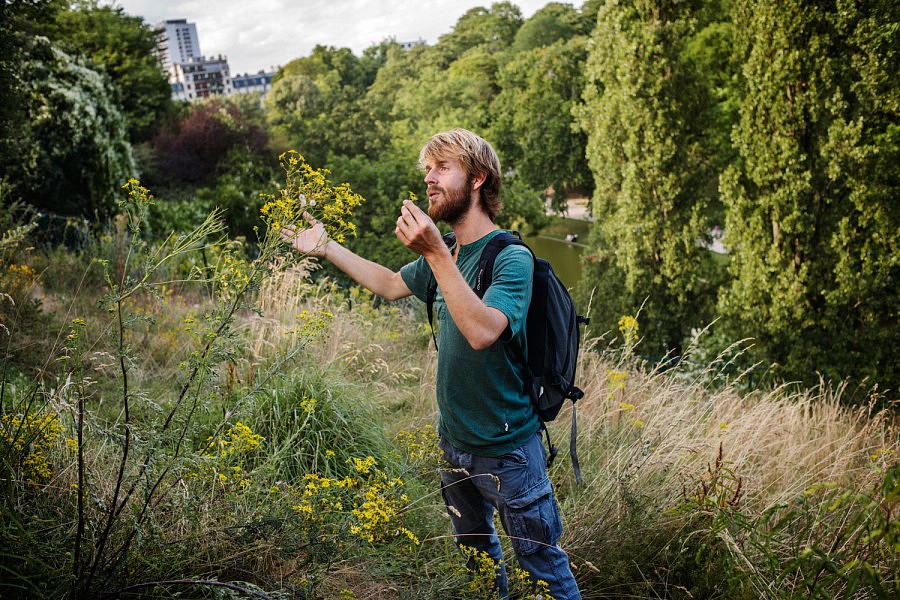
Plants
Rosehips contain up to 40 times more vitamin C than oranges. That’s the kind of information you glean when you follow Christophe de Hody around. He is a naturopath and herbalist, and organises special walks in the parks and woods of Paris and Île-de-France, such as Buttes-Chaumont park, with the aim of opening our eyes to all the edible and medicinal wild plants that grow in abundance in these oases of greenery.
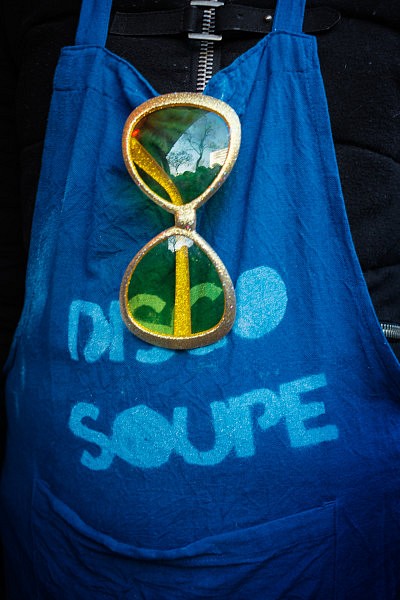 Peelings
PeelingsAccording to the Wrap organisation, each tonne of food thrown away is responsible for 4.5 tonnes of CO2 emissions. So if you’re fed up to your back teeth of seeing food go to waste, here’s a (free) recipe for Disco Soup: at the end of the market, go round and collect up all the vegetables that because they didn’t look just right or they were the wrong size were heading for the dustbin. Contact your friends and get together outside with some cooking equipment. Add a group of musicians who will play a few tunes while you peel away to the music – carrots, potatoes, leeks and onions… Cut them up into pieces (the vegetables, not the musicians). Pop them all into a great big pot and simmer them slowly over a camping stove. Whizz it all up with a blender. Pour into soup bowls. Serve nice and hot to cold passers-by.
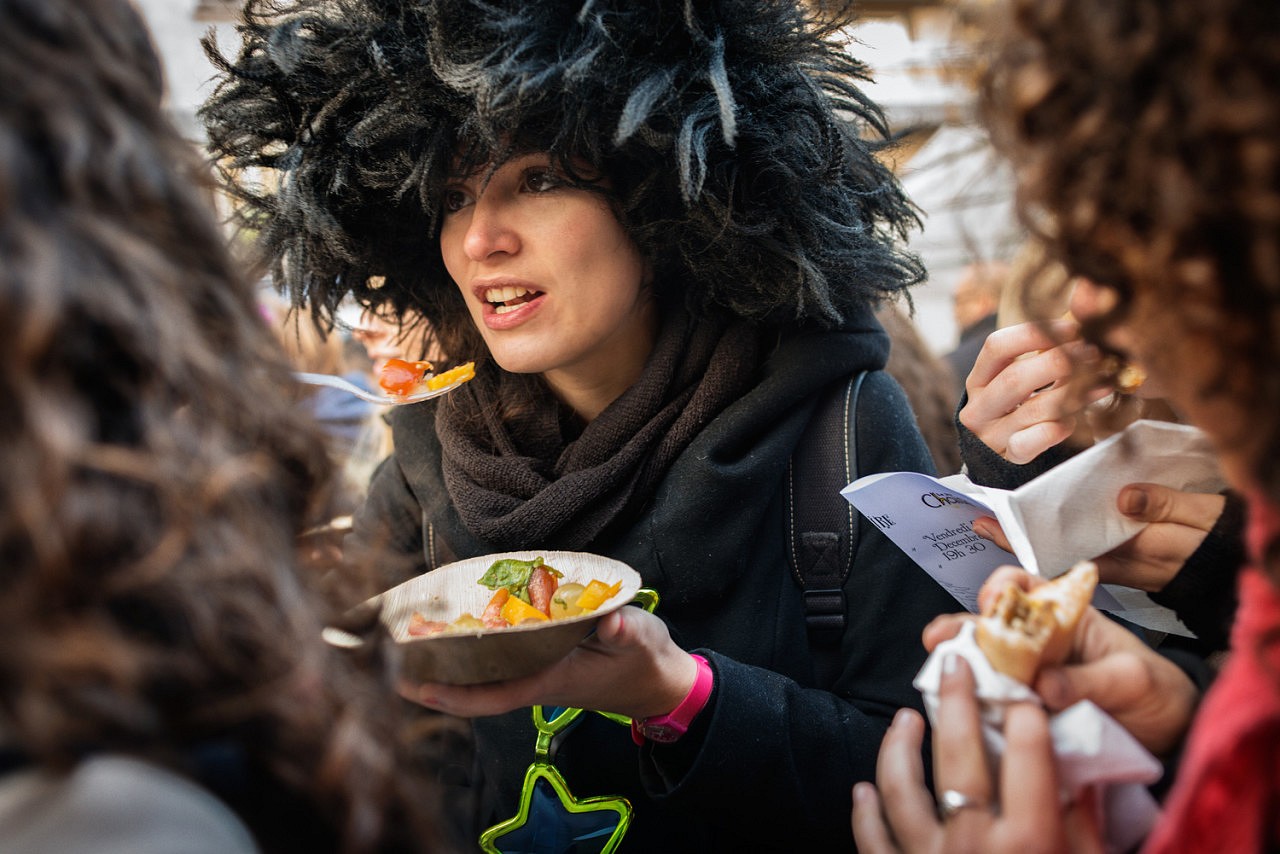
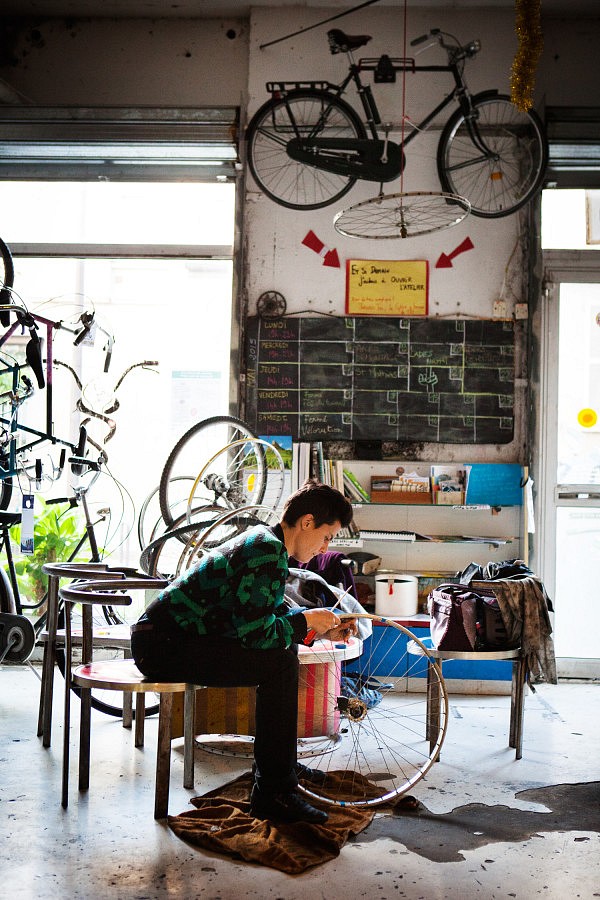 On your bike
On your bikeTo learn how to be self-sufficient and reduce your carbon footprint, you can pedal to your nearest collective, participatory bike workshop. These workshops, like the one at Cyclofficine in the 20th arrondissement of Paris, regularly organise cooperative bike repair sessions. Spares taken from old bikes, particularly from the council recycling centre, and tools are provided for members.
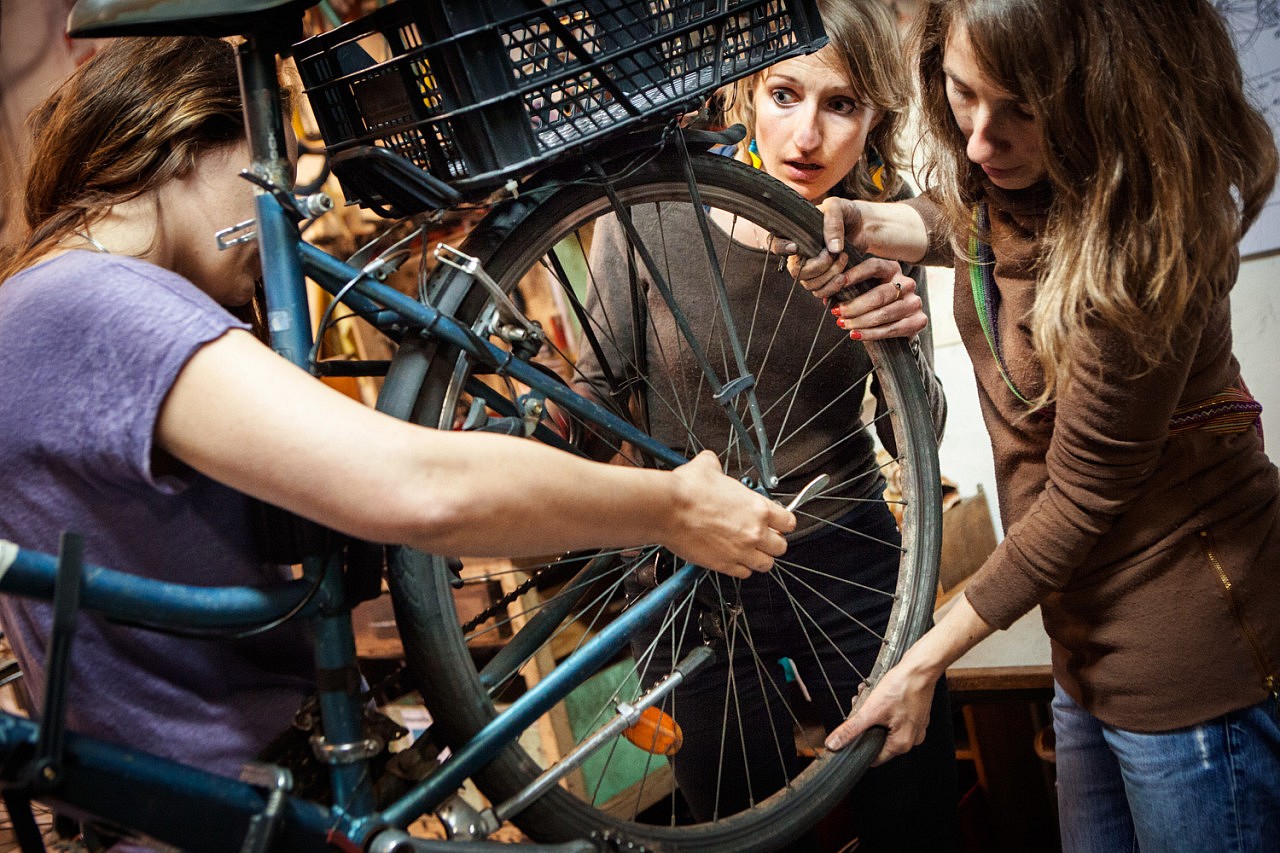
-
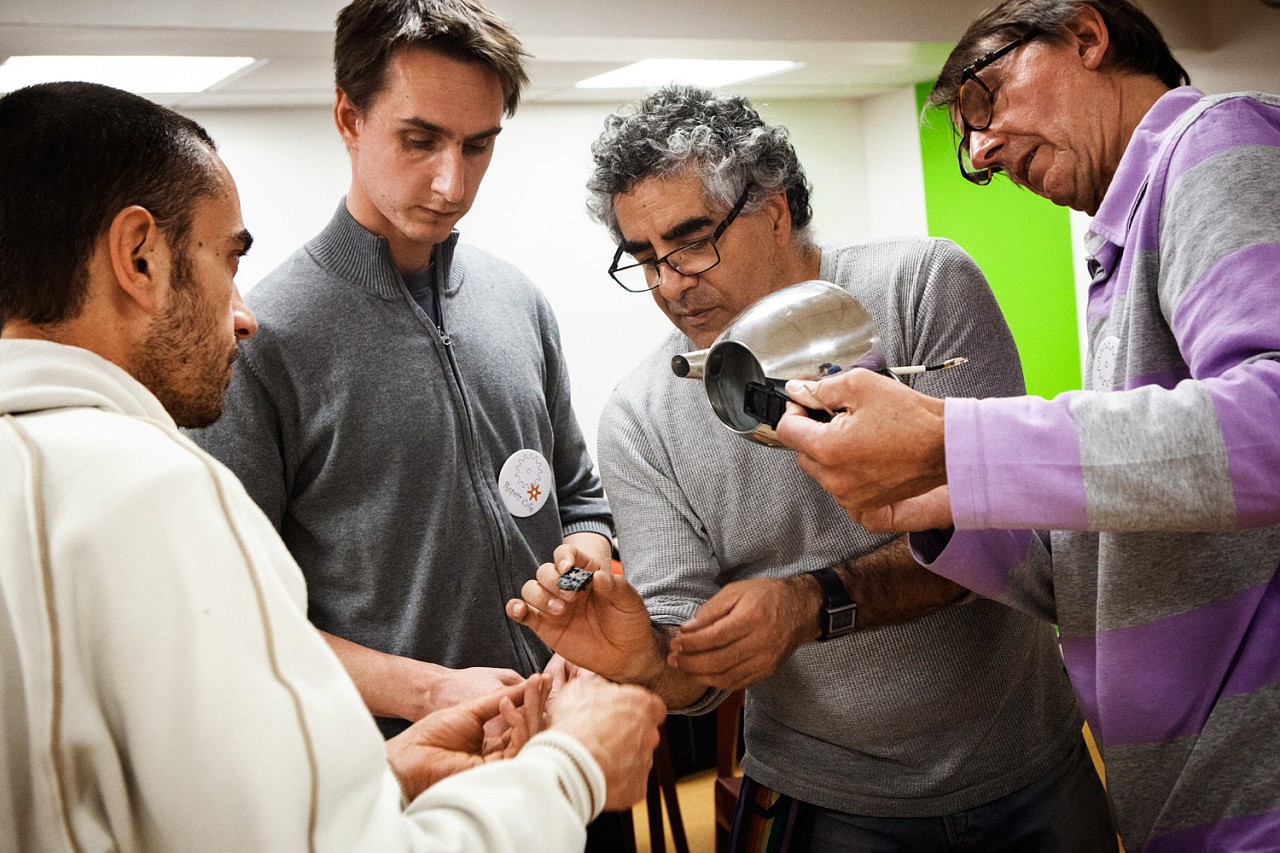
Toaster
A toaster under her arm, a grandmother arrives at the Repair Café de Paris, organised free once a month at the Espace Riquet social centre (Paris 19). She is hoping, «If only they can bring it back to life. It’s almost new, but no longer under warranty. I can’t afford to buy another one. Out of the question to throw it away.» Instructively, a volunteer passionate about DIY explains what is wrong with the toaster and reassuringly gives his diagnosis. The lady applauds her saviour: «You’re brilliant. I should have brought some bread to celebrate.» These «repair cafés» are one in the eye for the consumer society and the manufacturers who create throw-away goods. A great way of showing solidarity, protecting the Earth’s natural resources and reducing our carbon footprint.
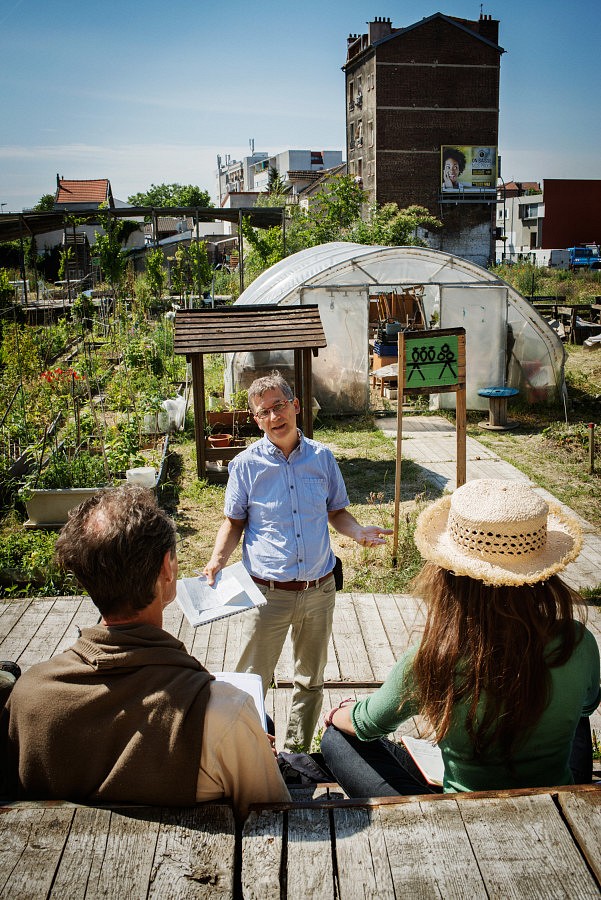 Earthworms
Earthworms«The best waste is the waste we don’t produce. That’s why I compost my fruit and vegetable peelings, my coffee grounds and my eggshells in a collective compost tub in my building’s courtyard. It means we can avoid incinerating domestic waste, which makes up 30% of our green dustbins, and a lorry having to come and collect it, which means fewer greenhouse gas emissions. And I can use it as fertiliser for my flowers and herbs». Mary Dyson, local representative of the Ville de Paris Compostage shared building composting scheme. In Colombes (Hauts-de-Seine), a composting school has opened to train «master composters».
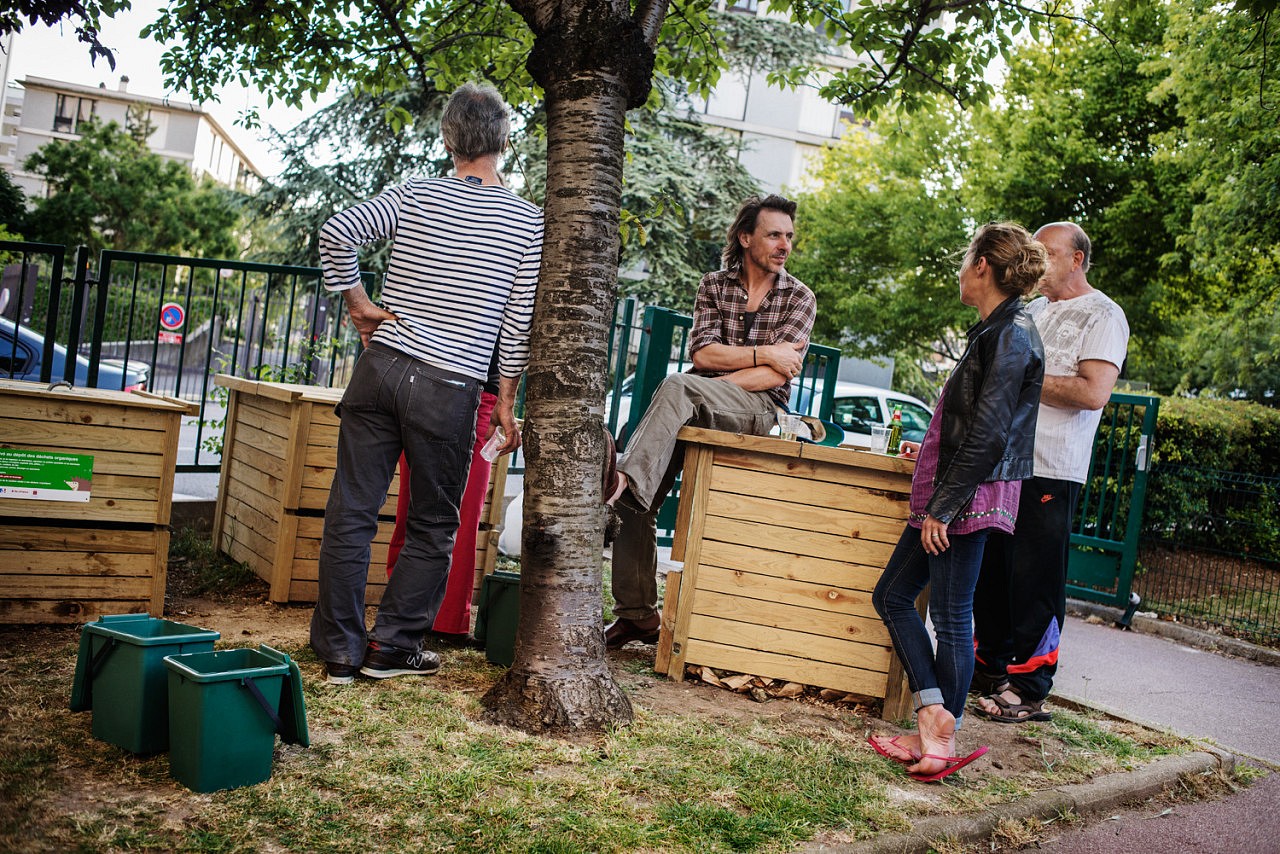
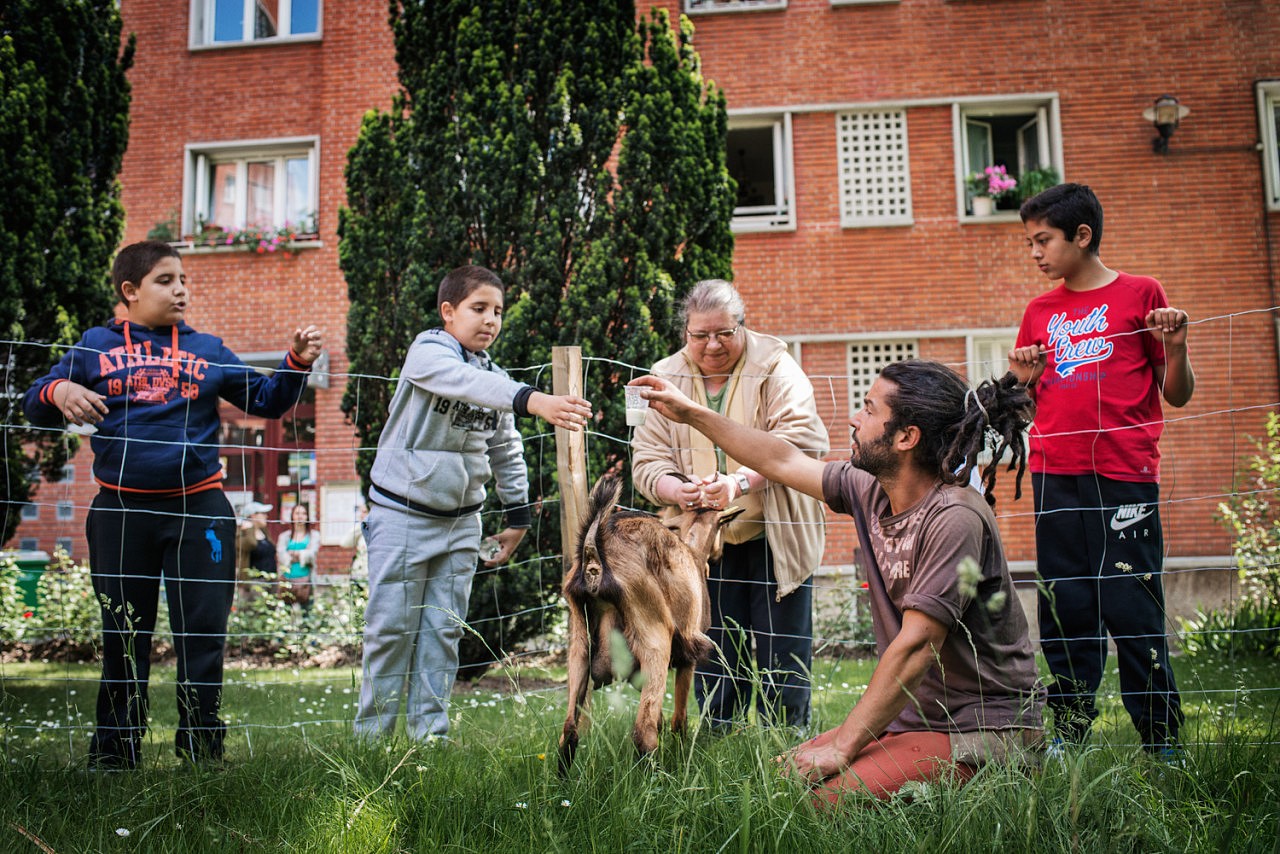
Lawnmower sheep
When you see Gilles Amar’s flock moving down the streets of Paris, you might think you’ve counted a few too many sheep. But no, you’re not dreaming. The founder of Sors de Terre association, who has built a sheepfold at the foot of the Les Malassis estate in Bagnolet (Seine-Saint-Denis) is raising local city-dwellers’ awareness of animals, nature and the issues around urban wasteland. From spring to autumn, the shepherd also practises eco-grazing, in particular on the Square d’Amiens housing estate (Paris 20). More and more local authorities, out of a concern to preserve biodiversity in the city, prefer to use, instead of a mechanical shredder that gives off CO2, a lawnmower sheep, a hedge trimmer goat or a brushcutter cow.
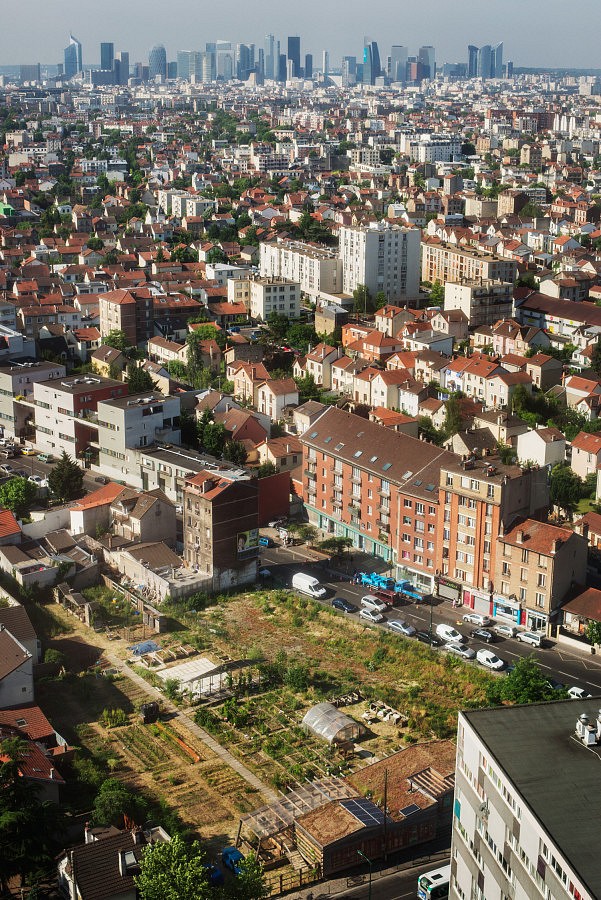 Lung
Lung«Moissonneur des Lilas», «P’tit bol d’air», «Fleurs de Bitume», «Potager des oiseaux» (Lilac Harvester, Little Breath of Air, Tarmac Flowers, Birds’ Vegetable Garden): these are just some of the names given to communal gardens, all of them so suggestive of a shady, grassy corner, hands covered in earth, crisp-looking vegetables being watered. And moments shared. These little «green lungs», which pay a role in combatting urban heat islands, are popping up all over the city, even on the roofs.
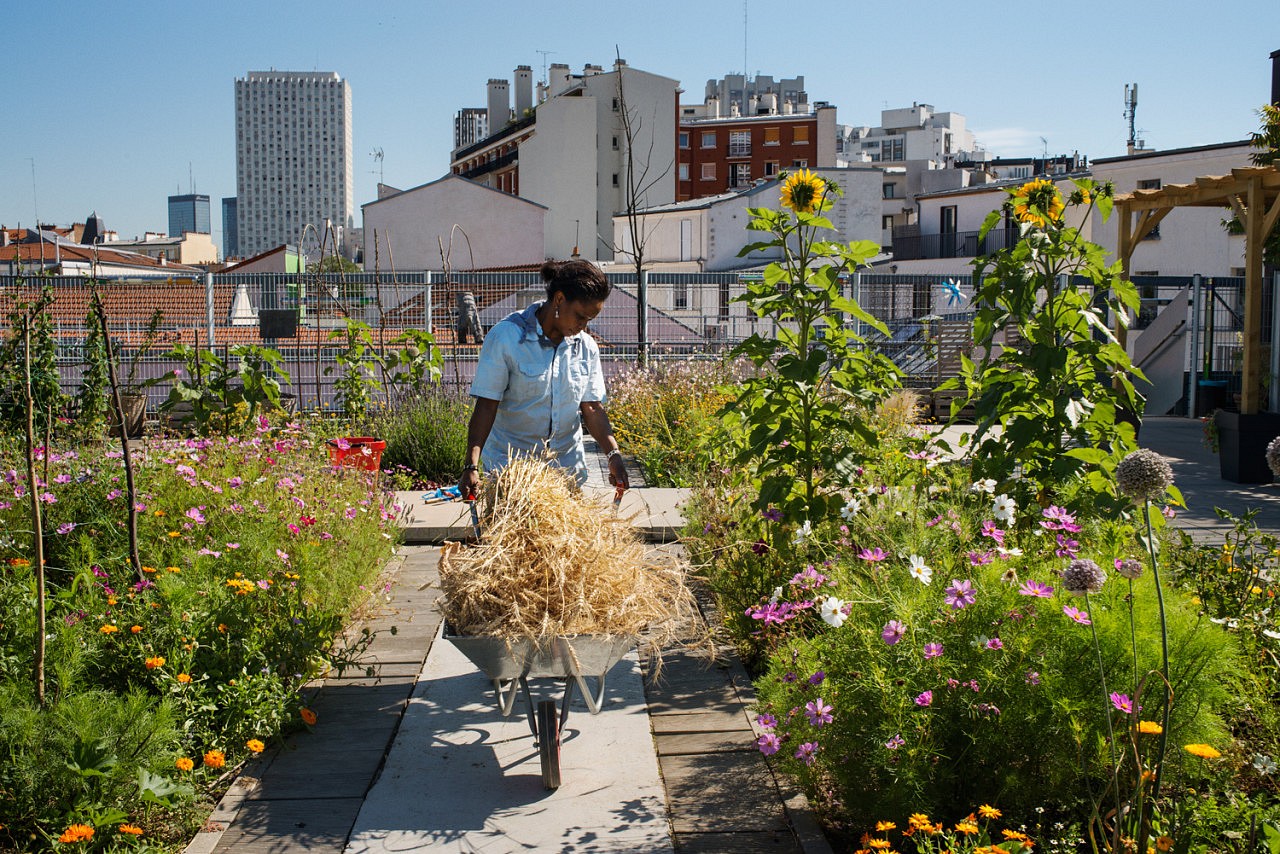
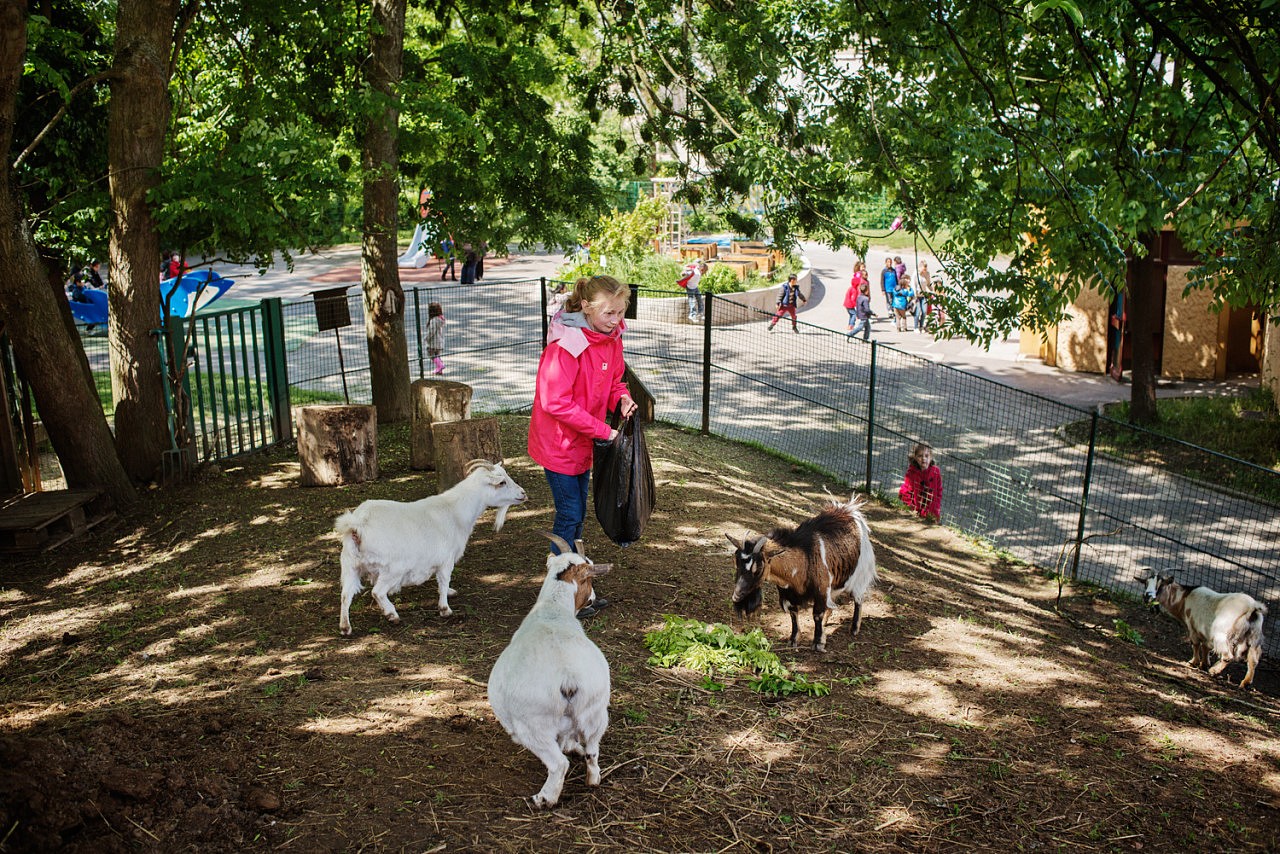 Question
QuestionThe playground at Bel-Air public primary school, situated in a working class area of Torcy (Seine-et-Marne) is home to an 850 m2 farm. Each playtime, the children, rush over to see the goats, hens, geese and rabbits. «The challenge is to change the relationship children have with school», explains Yvan Nemo, the head. «The space where you spend your time helps to structure you. When you’re surrounded by all this jumble, it raises questions, and you learn, with pleasure, to see things differently. It’s a living textbook.
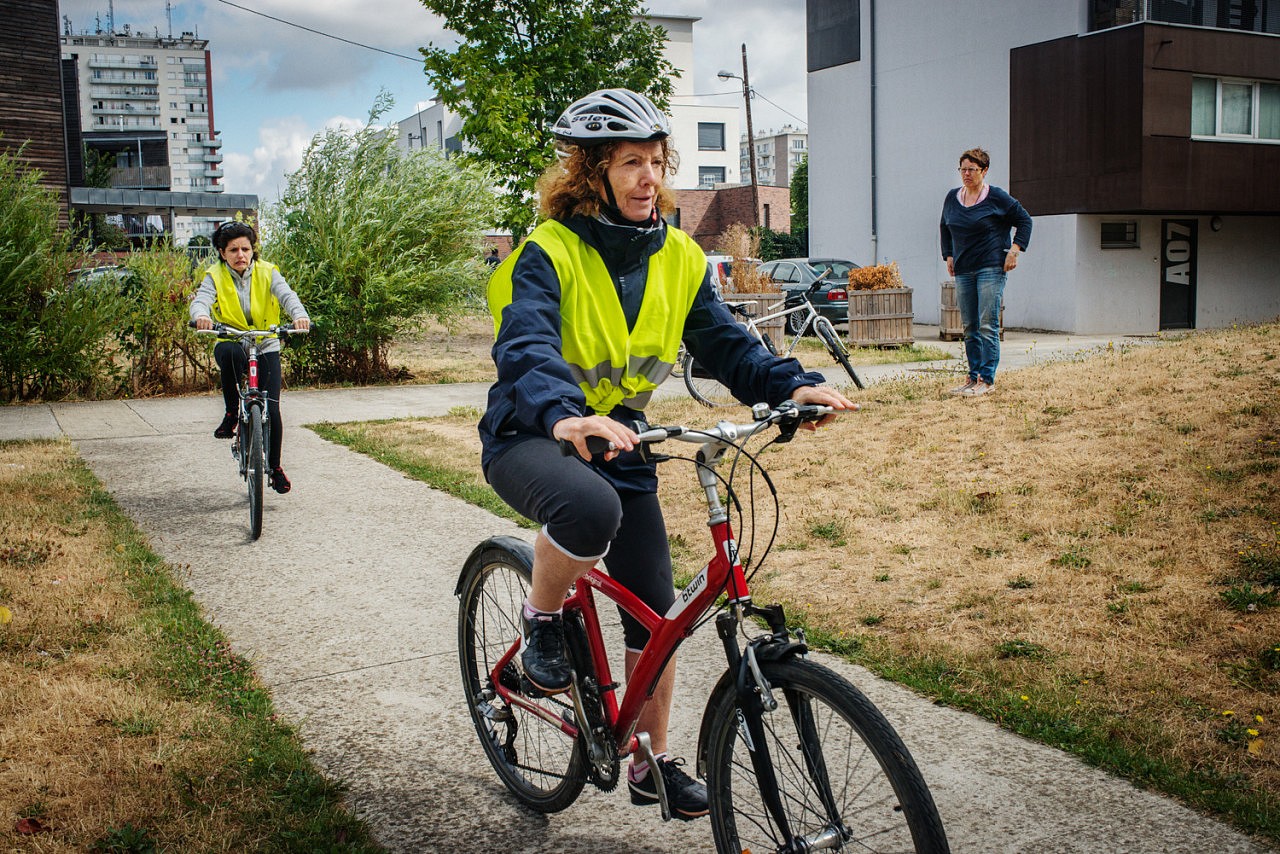
Childhood dream
«I am of Algerian origin. In my country, only the boys could ride bikes. When I arrived in France, my husband tried to teach me, but I was too scared. Here, they’ve got the right methods and the right kind of bikes for learners, so I feel completely safe. It’s a childhood dream come true.»
Khouka, aged 48, learner at the cycling school in Montreuil (Seine-Saint-Denis). This association, which promotes cycling as an environmentally-friendly form of transport, also teaches adults to ride a bike.
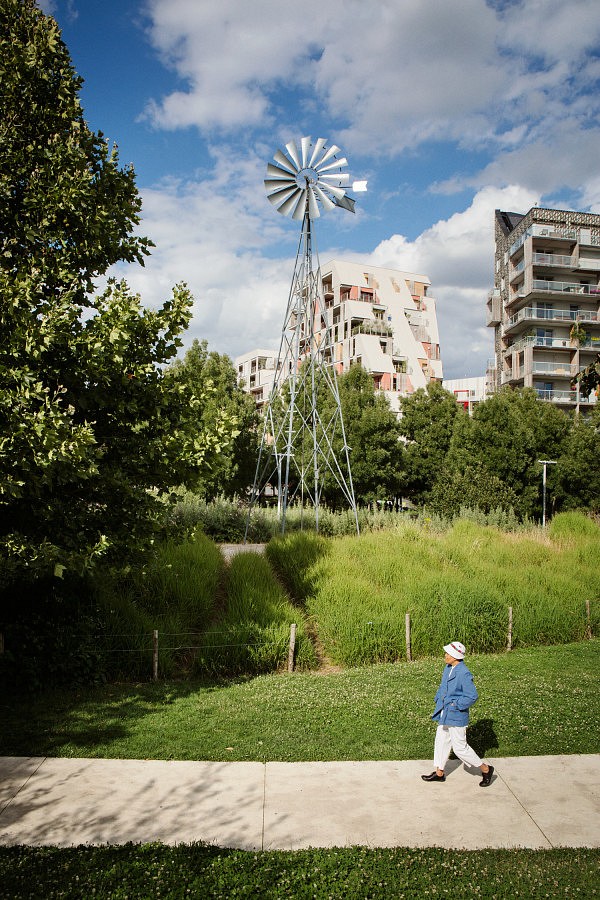 Eco-neighbourhood
Eco-neighbourhood With its 35,000 m2 of solar panels on its roofs, the thermal performance of these buildings, the deep geothermal heating system, or the pneumatic refuse collection system, this new eco-neighbourhood in Clichy-Batignolles could be a source of inspiration for tomorrow’s sustainable city.
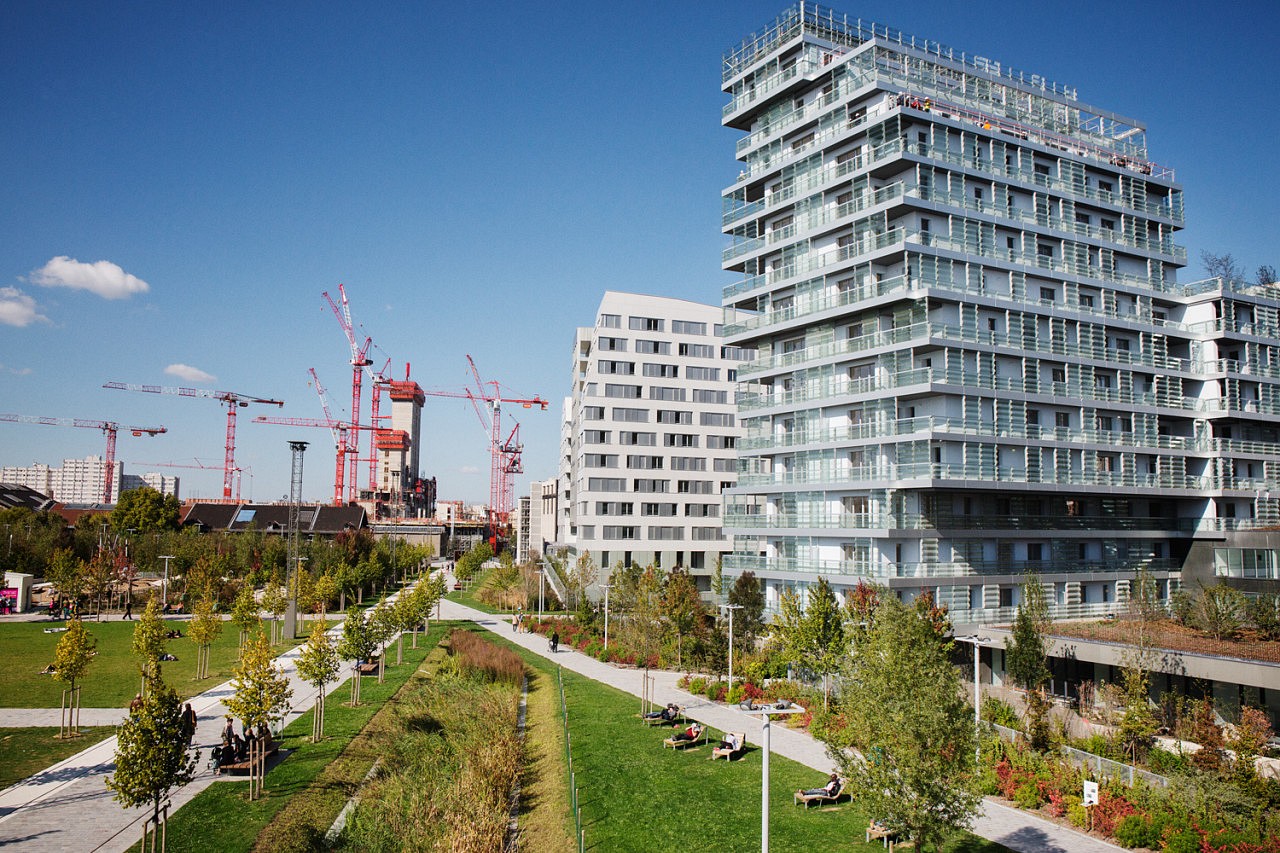
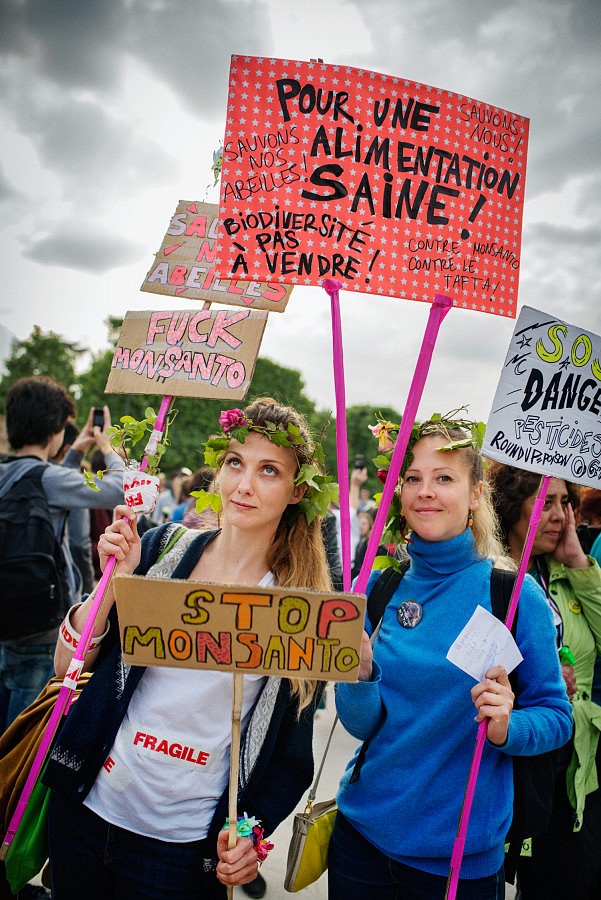 Slogan
Slogan In the fight against climate change, everyone has a role to play. Not just heads of state, at the 21st Conference of the Parties (COP 21), but also ordinary citizens. More and more of them are mobilising to raise the awareness of the general public to the need to reduce our environmental footprint. This can be seen in events such as Alternatiba, Green Pride, or Vélorution. And in their inspiring slogans, among them: «System change, not climate change».
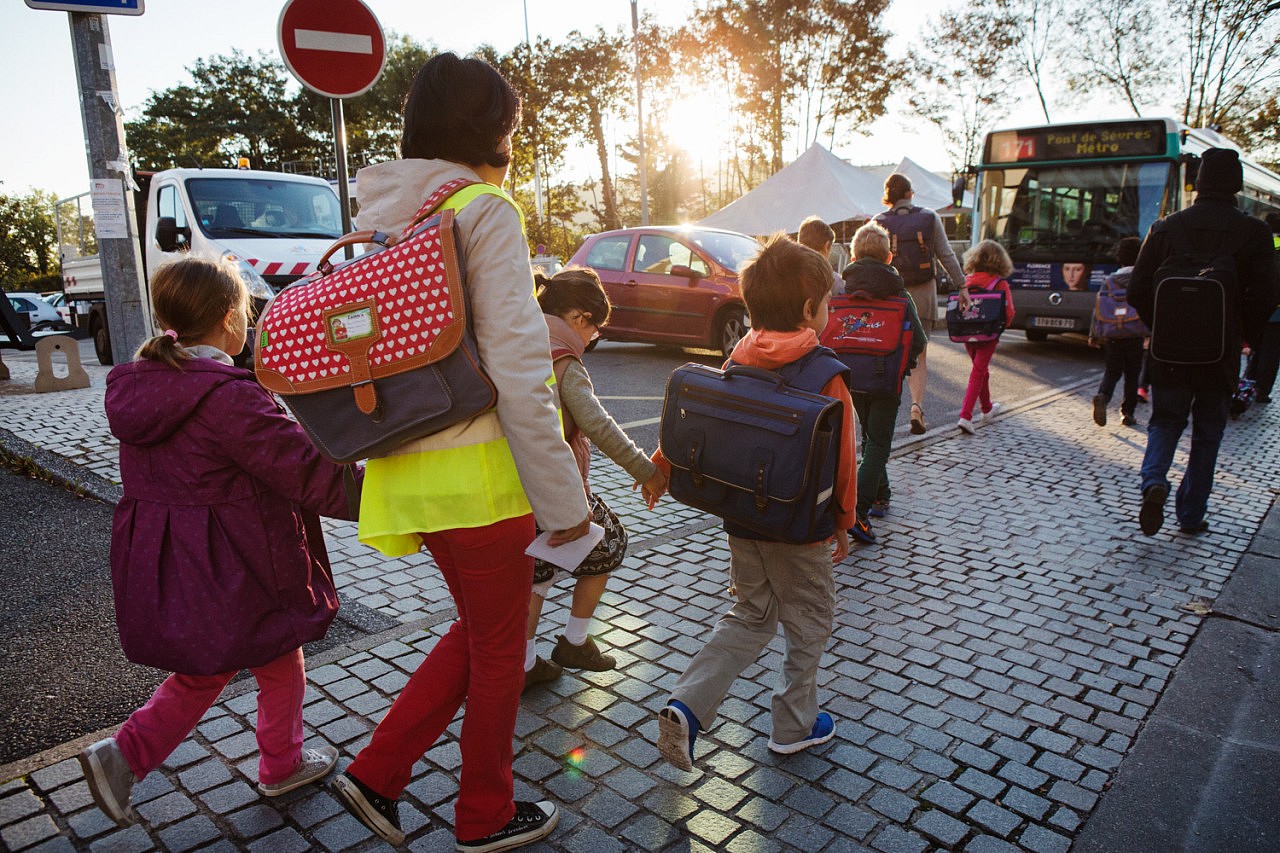
On foot
And how about taking the walking bus to school, like in Chaville (Hauts-de-Seine)? The walking bus consists of parents leaving their cars in the garage and taking it in turns to walk with a group of children to school. And at the same time, they get to raise their awareness of ecomobility.
